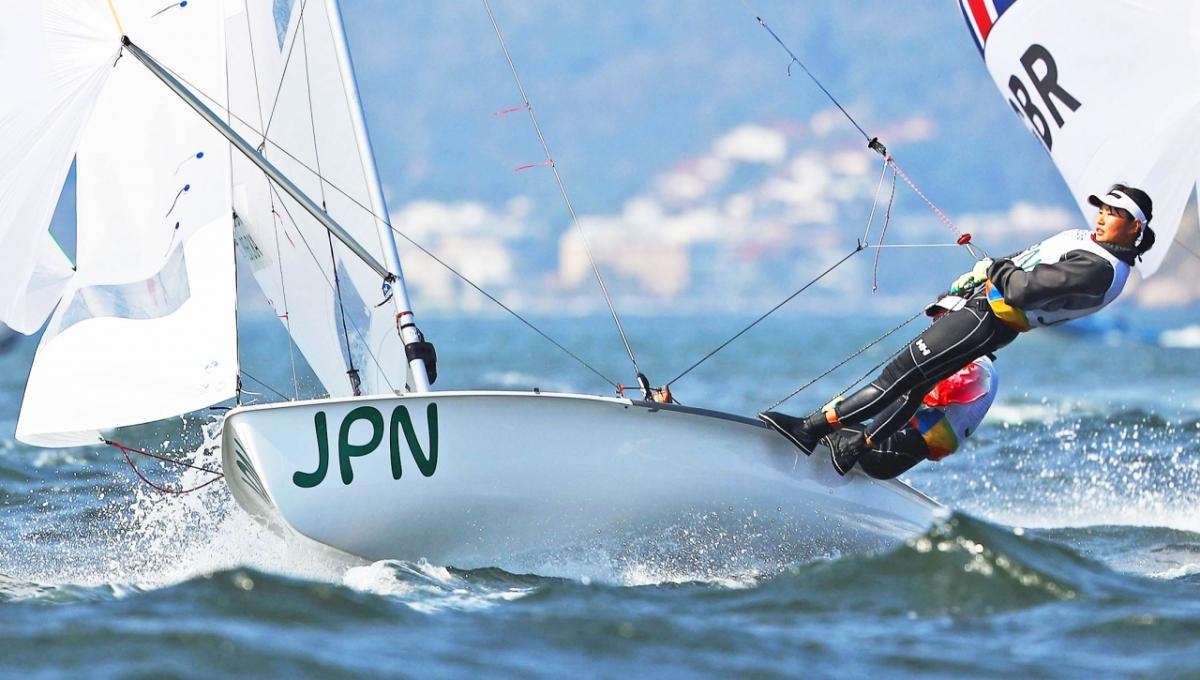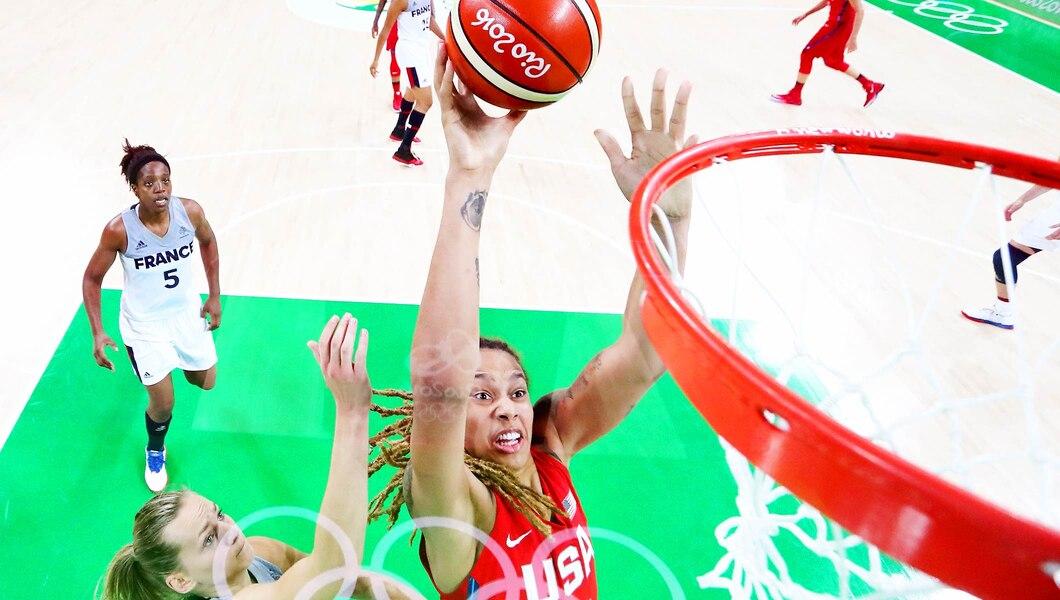Safeguarding and Gender-Balanced Media Portrayal in Sport Promoted in Concluding Sessions of IOC's Gender Equality Webinar Series
International Olympic Committee news
The International Olympic Committee (IOC) held its final two gender equality webinars for International Federations (IFs), focusing on the importance of gender-balanced portrayal in sport, as well as the development and implementation of safeguarding policies.
The challenge for women’s sport to achieve parity with men’s is clear: of the world’s top 100 highest-paid athletes, only two are women, while only four per cent of sports media content is dedicated to women. At the Olympic Games, female representation among accredited media averages 20 per cent.
PORTRAYAL: REMOVING GENDER BIAS AND ACHIEVING GENDER BALANCE
Opening session highlighted best practices when portraying an individual, team or organisation across communications output, media operations and broadcasting. Portrayal covers the language, images, prominence and positioning used in messaging and reporting, and participants learnt about the critical points, when action should be taken to create fair and equal depictions.
In her introduction, Slater insisted: “[There is] now [a] need for action, not pledges. You have really got to do and deliver, taking representation seriously and making sure that it is considered in all aspects of what you do. And, of course, continue the ongoing battle to stamp out bias.”
Talking about the initiatives promoted by the BBC, Slater continued: “In 2019, the BBC created and ran a campaign called “Change the Game”. This was our biggest ever commitment to women’s sport. We wanted to ensure that the BBC’s reach could put a spotlight on a whole range of women’s events. We wanted to rally the whole organisation behind this campaign. As a result, 45 million people across the UK consumed our women and sport coverage last year.”
Addressing unconscious bias, especially on social media, Slater said: ‘At BBC Sport, we want our platforms to be a respectful place for discussion, constructive criticism, debate and opinion. What we have committed to publicly is to block people bringing hate to our comments sections, report the most serious cases to the relevant authorities, work to make our accounts kind and respectful places, keep growing our coverage of women’s sport and keep having discussions on equality in sport.”
Adams explained the “Advantage All” gender equality strategy developed by the ITF. The programme was launched in 2018, with the promotion of gender equality taking centre stage at the ITF’s Annual General Meeting. It has been designed to allow national federations to develop a pathway to build their own strategy.
“Portrayal is one of the key pillars of our strategy,” Adams explained. “Our aim is to raise the commercial appeal of the women’s game. We have, for example, worked hard to reposition and rebrand the Fed Cup as the Billie Jean King Cup. The cup now has equal prize money and increased sponsorship.”
She continued: “We promote equal prominence of men and women. We have balanced coverage in ITF news and media, both print and digital, as well as broadcast. We need to work even more closely with broadcasters in order to influence their portrayal. It is imperative that we have the right messaging, that we are using the right images to make sure that if you see it, you can believe it and be in it. We need to have a continued conscious effort to ensure the balanced portrayal of women’s tennis at all levels.”
Recognising that sports coverage is very influential in shaping norms and stereotypes of women/girls and men/boys, the IOC developed in 2018 a set of guidelines to raise awareness on gender-balanced portrayal (i.e. how women and men are presented and described). They provide examples and best practices within the sporting context – notably in the areas of print and digital.
SAFE SPORT: DEVELOPING POLICIES AND PROCEDURES
The IOC has been raising awareness about athlete safeguarding globally by encouraging every sports and sport-for-development organisation to tackle this issue and improve athlete protection. The one-hour session dedicated to safe sport took a roundtable format and addressed specific challenges such as investigations and case management, areas in which IFs often encounter difficulties.
Featured speakers were Havard B. Ovregard, senior adviser for the Norwegian Olympic and Paralympic Committee and Confederation of Sports; and Ingrid Beutler, founder of Beutler International Sports Advisory. The webinar provided the opportunity to highlight where further information can be found and stimulated peer-to-peer sharing of best practices.
“Every sports club must be aware that harassment and abuse cases happened in the past, are happening now or will happen in the future. You cannot be neutral; there should always be a reaction, and we all have a responsibility to address this issue,” explained Ovregard, who mentioned the work done by the Norwegian National Olympic Committee in this respect. “Our NOC has a vision named ‘Joy of Sport for All’, which includes zero tolerance when dealing with these cases, and has adopted guidelines to explain the procedures to follow and also the key risk situations.”
Beutler explained how to conduct a proper investigation process, detailing the various phases, including how to manage interviews, and stressing the importance of having clear procedures. “First of all, every organisation should assess whether they have a safeguarding policy in place and investigative procedures. It is an ethical imperative to protect victims, prosecute wrongdoing and reduce harm.”
With regard to a reporting mechanism, Beutler reminded participants that the IOC has developed, together with United Nations Office on Drugs and Crime (UNODC), a practical guide to help sports organisations at national and international level.
Earlier this month, the IOC approved the establishment of the “International Safeguarding Officer in Sport Certificate”. The course, which leads to certification, is set to commence in September 2021. This is a first of its kind as there is currently no certificate or minimum standard of education or training for safeguarding officers in sport on an international level.
ACTIVE PARTICIPATION SHOWCASES HIGH INTEREST IN GENDER EQUALITY TOPICS
Overall, more than 200 people joined each session of the gender equality webinars, held as part of the IOC’s 5th IF Gender Equality Forum, which was originally scheduled to take place in April 2020 but was cancelled due to the COVID-19 pandemic. The aim of the series was to share examples of initiatives and toolkits that can be adapted and implemented by IFs; inspire and encourage federations to embrace change; and develop action plans to address gender equality in sport.
For those who may have missed the first two lots of webinars, highlights, as well as the full videos, can be found here:
Participants are being encouraged to carry on the conversation on the IOC LinkedIn community group dedicated to gender equality. The group has already gathered some 800 like-minded individuals, all working to advance gender equality in sport.



